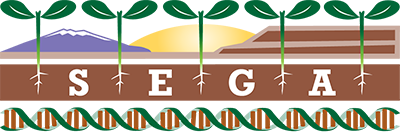You are here
The Proportion of Three Foundation Plant Species and Their Genotypes Influence an Arthropod Community: Restoration Implications for the Endangered Southwes...
Publication Type:
Journal ArticleSource:
Restoration Ecology, Volume 21, Issue 4, p.447 - 456 (2013)URL:
http://onlinelibrary.wiley.com/doi/10.1111/j.1526-100X.2012.00910.x/abstractAbstract:
As part of a restoration project, multiple genotypes of two tree species, Fremont cottonwood (Populus fremontii) and Goodding's willow (Salix gooddingii), and one shrub species, Coyote willow (S. exigua), were experimentally planted in different proportions at the Palo Verde Ecological Reserve near Blythe, California, U.S.A. These common woody plant species are important to the endangered southwestern willow flycatcher, providing perch, nesting, and foraging habitat. We conducted this study to evaluate plant species proportion and plant genotype effects on the arthropod community, the prey base for the endangered southwestern willow flycatcher. Three patterns emerged. First, plant species proportions were important; the arthropod community had the greatest richness and diversity (H芒聙虏) when Goodding's willow proportion was high and Fremont cottonwood proportion was lower; that is, fewer Fremont cottonwoods are required to positively affect overall arthropod diversity. Second, we found significant genotypic effects, for all three plant species, on arthropod species accumulation. Third, while both planting proportion and genotype effects were significant, we found that the effect of planting proportion on arthropod richness was about twice as large as the effect of plant genotype. This shows that both plant species proportions and genotype should be utilized in restoration projects to maximize habitat heterogeneity and arthropod richness. Similar studies can determine which planting proportion and specific genotypes may result in a more favorable arthropod prey base for the southwestern willow flycatcher and other species of concern. Greater attention to planting design and genotype can result in significant gains in diversity at little or no additional project cost.
- Log in to post comments
- Google Scholar
- RTF
- EndNote XML
- RIS
Theme by Danetsoft and Danang Probo Sayekti inspired by Maksimer
